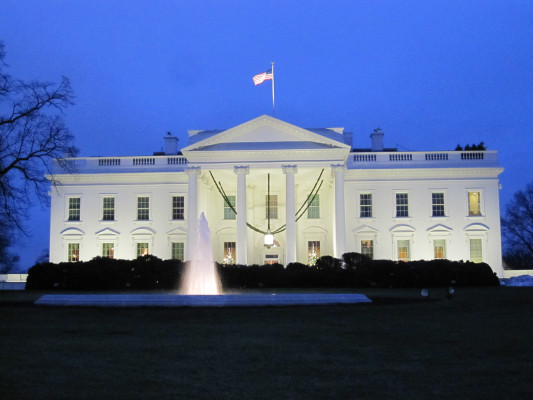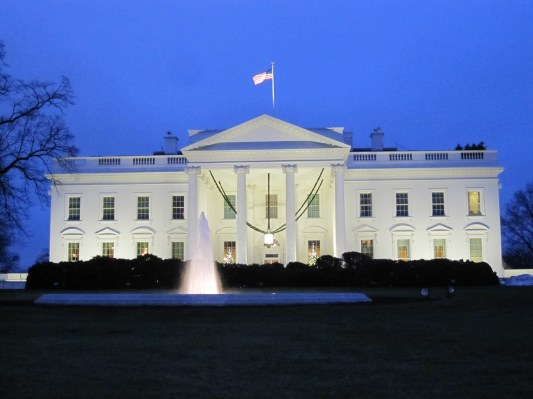

Artificial intelligence has been a mainstay of the conversation in Silicon Valley these past few years, and now the technology is increasingly being discussed in policy circles in DC. Washington types see opportunities for AI to improve efficiency and increase economic growth, while at the same time, they have growing concerns around job automation and competitive threats from China and other countries.
Now, it appears the White House itself is getting involved in bringing together key American stakeholders to discuss AI and those opportunities and challenges. According to Tony Romm and Drew Harwell of the Washington Post, the White House intends to bring executives from major tech companies and other large corporations together on Thursday to discuss AI and how American companies can cooperate to take advantage of new advances in these technologies.
Among the confirmed guests are Facebook’s Jerome Pesenti, Amazon’s Rohit Prasad, and Intel’s CEO Brian Krzanich. While the event has many tech companies present, a total of 38 companies are expected to be in attendance including United Airlines and Ford.
AI policy has been top-of-mind for many policymakers around the world. French President Emmanuel Macron has announced a comprehensive national AI strategy, as has Canada, which has put together a research fund and a set of programs to attempt to build on the success of notable local AI researchers such as University of Toronto professor George Hinton, who is a major figure in deep learning.
But it is China that has increasingly drawn the attention and concern of U.S. policymakers. The country and its venture capitalists are outlaying billions of dollars to invest in the AI industry, and it has made leading in artificial intelligence one of the nation’s top priorities through its Made in China 2025 program and other reports. These plans are designed to coordinate various constituencies such as university researchers, scientists, companies, venture capitalists, and anyone else who might be able to assist in building out China’s AI capabilities.
In comparison, the United States has been remarkably uncoordinated when it comes to AI. While the government has released some strategic plans, it has mostly failed to follow through on coordinating more dollars towards artificial intelligence. As The New York Times noted in February, the White House has been remarkably silent on AI, despite the growing discussions around the technology.
That lack of engagement from policymakers has been fine — after all, the United States is the world leader in AI research. But with other nations pouring resources and talent into the space, DC policymakers are worried that the U.S. could suddenly find itself behind the frontier of research in the space, with particular repercussions for the defense industry.
Expect more news on this front in the coming months as DC’s various think tanks and analysts get their policy processes in motion.

